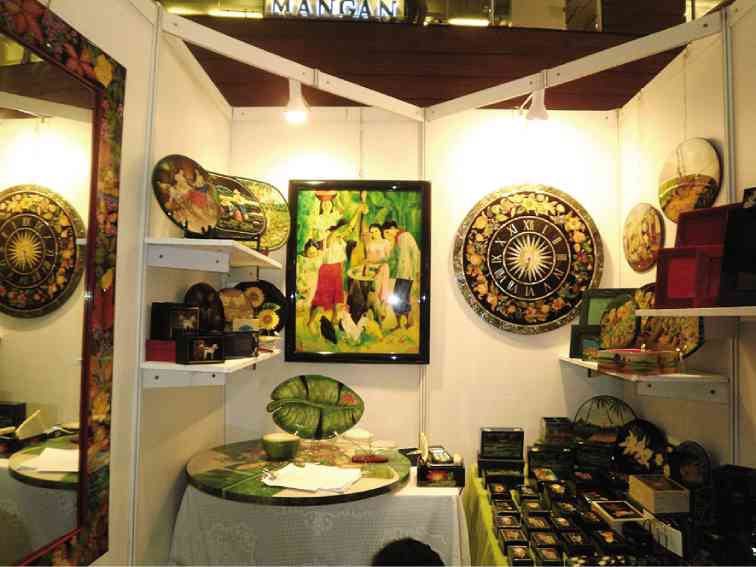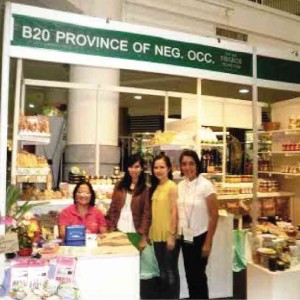Negros producers: Lesson in rising from rubble of crisis
A tragedy-befallen community can rise and be reborn into one that is stronger and more vibrant.
The lesson of the mythical phoenix rising from the ashes of its own ruins was learned by the people of Negros Occidental in the early 80s when sugar prices toppled in the world markets, shutting down sugar cane plantations and bringing about pervasive unemployment and hunger and pockets of insurgency.
What can we do?—was the question that faced the more affluent of Negros society, especially the hacienda owners and their families.
Negros women rose up to the challenge. Their first palliative responses—feeding brigades, medical missions, dole-outs—soon gave way to long-term entrepreneurial initiatives, activities seen to provide stable jobs and income to the displaced sugar workers, their wives and children.
Thus began Negros’ transformation from sugar-dependent economy into a world-class handicrafts center.
The pioneering entrepreneurs formed the Handicraft Art for Negros Development (HAND) so they can help each other and have a stronger voice when asking for outside assistance.
With support from the provincial government, HAND successfully organized its first trade fair in 1985 at Quad Park in Makati.
Soon, more and more Negrenses were encouraged to similarly put up their own enterprises. In 1988, HAND became the Association of Negros Producers (ANP), many of whose members have gone into exporting.
At last count, ANP has 115 members, categorized into five sectors: food, 21 percent; garments and fashion, 30 percent; gift, toys and housewares, 25 percent; furniture and furnishings, 15 percent; and natural and organic products, 9 percent.
Together they account for more than 15,000 employees, excluding thousands of home workers.
The ANP showroom at Lourdes C. Building on Lacson Street, Bacolod City, has become a “must visit” place for local and international tourists.
ANP and its members have since pushed local boundaries in their promotional and marketing activities. The direct and indirect markets for ANP products include the US, Japan, Singapore, and countries in Europe, Africa, Scandinavia, and the Middle East, thanks to a large part to local and international trade fairs, exhibits and trade missions ANP organizes for its members.
The Negros Trade Fair has become an annual showcase of the ingenuity, creativity and commitment to product excellence which ANP members have achieved and continue to grow in. A highlight of the expo is the Bulawan (Golden) award given to members that have engaged in product, design, and packaging innovation in an outstanding way.
Raising productivity and quality benchmarks among its members is an overriding concern. Thus training of managers and workers of ANP firms is a priority. It has for example run programs on exporting basics, negotiating with buyers, costing and pricing, shipping and containerization, inspection and quality control, packing, labeling, good housekeeping, and supply value chain.
ANP credits its extensive network of support agencies for its ability to perform all these services for its members. The provincial government, the DTI and its attached agencies especially the CITEM , the DOST and its R&D units, the UP ISSI-SERDEF, the Buy Pinoy Movement, and the Foundation for a Sustainable Society have extended help. External assistance has come from the Canadian International Development Agency, Japan External Trade Organization, the United States Assistance for International Development, Australian Business Volunteers, and AFOS Foundation, among others.
ANP president Josephine Locsin cites the spirit of volunteerism, good synergy with stakeholders and partners, and strong faith in God as factors that account for ANP’s achievements.
ANP needs to be on its toes to sustain what has been achieved, she avers. “We have a lot of competition now so we have to upgrade our showroom. We also need to improve our internal structure and system.”
Locsin also sees a need to strengthen ANP and its members. “We are working towards complying with international standards like the ISO so we can be certified as a business service organization (BSO).”
The story of Negros’ economic rehabilitation through entrepreneurship can be replicated in many parts of the country.
During the incumbency of President Ramos, ANP was identified as a model for the National Economic Enterprise Development Program which sought to introduce livelihood activities in 20 depressed provinces of the Philippines. The initiative gave birth to the ANP Foundation for Enterprise Development, Inc. (ANP-FEDI), headed by Reena Peña, which helped nurture more than 150 enterprises nationwide.
(The author is a member of the Small Enterprises Research and Development Foundation (SERDEF). For more stories on entrepreneurship and enterprise development, visit the SERDEF website on www.serdef.org.)

